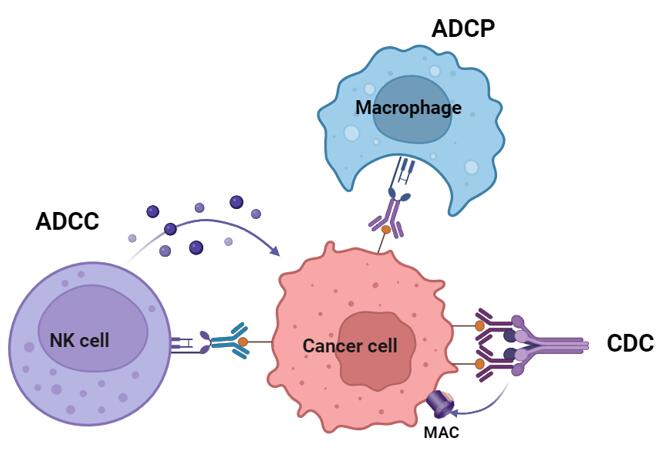Antibody-mediated tumor killing refers to the process by which antibodies, specifically monoclonal antibodies, play a crucial role in targeting and eliminating cancer cells. This mechanism involves the use of engineered antibodies that are designed to recognize and bind to specific antigens expressed on the surface of tumor cells. Once bound, these antibodies can initiate various immune responses to eliminate the cancer cells.
There are several mechanisms involved in antibody-mediated tumor killing, including antibody-dependent cellular cytotoxicity (ADCC), complement-dependent cytotoxicity (CDC), and antibody-dependent cellular phagocytosis (ADCP).
 Figure 1. Antibody-Mediated Tumor Killing
Figure 1. Antibody-Mediated Tumor Killing
Creative Bioarray's ADCC, CDC, and ADCP assays provide valuable tools for evaluating the tumor-killing potential of therapeutic antibodies. By providing quantitative and qualitative data on the tumor-killing mechanisms employed by therapeutic antibodies, these assays enable researchers and developers to evaluate antibody efficacy, select optimal candidates for further development, and monitor therapeutic antibody performance during preclinical and clinical stages. Ultimately, they contribute to the advancement of targeted cancer therapies by optimizing the design and development of effective antibody-based treatments.
Online Inquiry